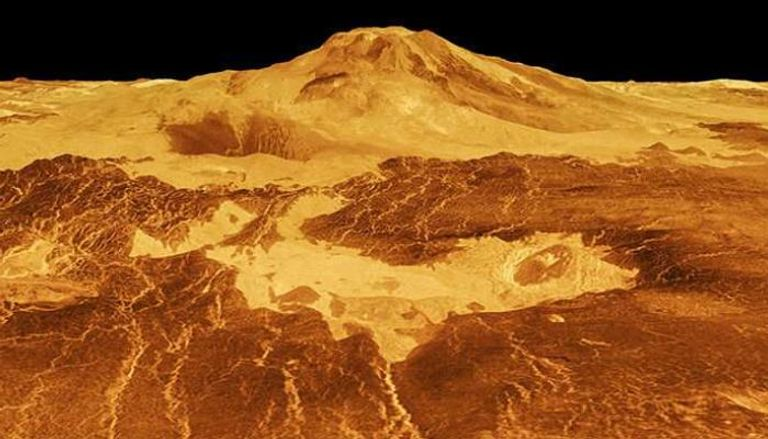The Earth escapes the fatal fate of Venus. A study writes all the history
A new study reveals the role volcanoes play in the deadly global warming of life on Venus.
The new study by researchers from the Department of Astrobiology and Space Science at the Ames Research Center of the US space agency, NASA, has revealed the role volcanoes play in the deadly global warming of life on Venus, and the same active volcanic activity almost also destroyed the Earth, but he survived that.
According to the study published in the latest issue of the Journal of Planetary Sciences, Venus suffered from a large number of large igneous provinces (LIPs) at one time, which are huge deposits of rocks born in magma as a result of volcanoes, and there are indications that the Earth is suffering from the problem. Same, but not in the same deadly way as life on Venus.
The only way for large igneous provinces to function is to open up the earth's crust, and that can happen when tectonic plates diverge or when mantle plumes rise to the surface, and as they form, tons of gas to greenhouse effect are released into the atmosphere, dramatically. changing the climate, and continuing formation It has been a major igneous province for about five million years and is having devastating effects on the climate.
Researchers have an incomplete record of major igneous provinces on Earth, this is because our planet is constantly surfacing through plate tectonics, but although the age of Earth's current surface does not exceed 500 million years, clever geologists were able to discover its remains buried deep in the earth's crust.
Venus – One Fate of a Habitable World
According to the research, large igneous provinces seem to have formed on Earth at random intervals, and there is no known reason that could lead to several of them forming together, and it is assumed that a single event of their formation does not change the climate system permanently, because the Earth has experienced many formations of La grande igneous provinces and we still have a stable climate.
Conversely, several simultaneous events of formation of large igneous provinces can completely destroy a planet. If too many gases are released simultaneously from this process, many greenhouse gases escape into the atmosphere, which can lead to a short-lived effect.
If the atmosphere traps a lot of heat, the oceans begin to evaporate, and with more water in the atmosphere, it traps more heat, which increases the temperature of the oceans, and the cycle continues and lengthens , which eventually leads to "thermal water". the death. For a Moderate World.
The researchers say it's clear that Earth avoided this fate, but we see evidence of many extinct volcanoes on Venus, which indicates that it suffers from this problem.
science and technology
https://al-ain.com/article/earth-escapes-fatal-fate-venus?utm_source=site&fbclid=IwAR3rJ6SUXSgfV_bB5KA_85rpnbrB4MsQy9bJeSt2ET51YH__OaGWPuDOE-U


